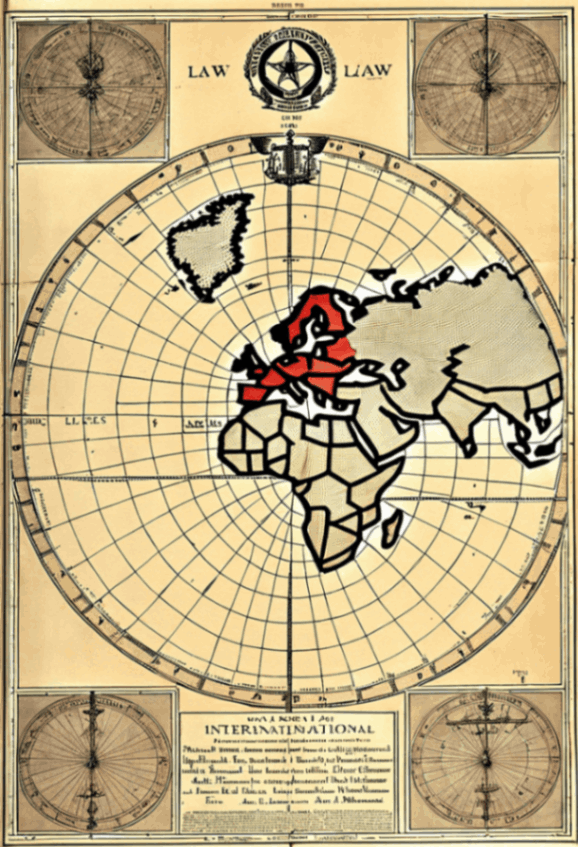

Consular assistance is a fascinating aspect of international law. Its not just some dry, legal term; it actually has real-world implications for people traveling or living abroad. The definition and scope of consular assistance can be tricky to pin down, but let's give it a shot.
Get the news click below. First off, consular assistance generally refers to the support that a country's consulate or embassy provides to its citizens when they are in another country. This could include anything from helping with lost passports (oh no!), offering advice in emergencies, getting you outta sticky situations like arrests or hospitalization, and even assisting with repatriation in extreme cases. But hey, this doesn't mean the consulate will always bail you out! They ain't your personal service provider.
Now, on to the scope that's where things get interesting and a bit convoluted too. The Vienna Convention on Consular Relations of 1963 lays down the basic framework for what consuls can do. Yet, it's not exhaustive; different countries might interpret these rules differently based on their laws and policies. So while one country might offer extensive help during natural disasters, another might have more limited resources or willingness to do so.
It's also worth mentioning that there are limitationsyes, those pesky limits! Consuls can't interfere with the host country's judicial system. If youre arrested abroad (yikes!), they can't magically whisk you away back home without going through proper channels. What they can do is ensure you're treated fairly under local laws and facilitate communication with your family.
In addition, there's often confusion between diplomatic protection and consular assistancethey aren't quite the same thing. Diplomatic protection involves formal actions taken by one state against another on behalf of its citizen who has been wronged internationallya much bigger deal compared to everyday consular help.
So yeah, while consular assistance is incredibly valuable for globetrotters and expatriates alike, it aint an all-encompassing safety net! You gotta take responsibility too; dont expect miracles if you've seriously messed up abroad.
Whew! That was a whirlwind tour through what consular assistance means in international lawhope it cleared things up at least a little bit!
Sure, here's a short essay on the historical development and legal frameworks governing consular assistance.
---
Historical Development and Legal Frameworks Governing Consular Assistance
Consular assistance has been around for centuries, but it ain't always looked like it does today. Back in ancient times, there wasn't really any formal system to protect citizens abroad. Merchants and traders were often left to fend for themselves when they traveled to foreign lands. If they got into trouble, well, tough luck.
It wasn't until the Middle Ages that we started seein' more structured forms of consular representation. The Venetians were among the first to appoint consuls in various cities throughout their trading empire. These early consuls mainly helped with commercial disputes - ya know, makin' sure their merchants weren't getting ripped off by locals.
Fast forward a few hundred years to the 19th century, and we start seeing modern consular services take shape. Treaties between countries began to include provisions for protecting citizens abroad. The Vienna Convention on Consular Relations of 1963 was a game-changer; it laid down clear rules about what consuls could and couldn't do. This treaty is still in effect today and most countries are parties to it.
In terms of legal frameworks, every country has its own laws regarding how its embassies and consulates operate overseas. For instance, U.S law gives American citizens certain rights when they're dealing with embassies or consulates - like being able to get help if you're arrested or fall seriously ill abroad. But these rights aren't unlimited; for example, you can't expect a consul to bail you out if you've broken local laws.
One thing that's important is that not all countries play by the same rules when it comes to offering consular assistance. Some nations have strict limits on what their diplomats can do while others offer extensive support networks for their citizens overseas.
And don't forget about international law! Apart from national regulations there's also international agreements that govern how states interact diplomatically including those related directly towards providing aid through diplomatic missions such as embassies or high commissions globally spread around different continents ensuring safe travel even during emergencies especially under situations involving natural disasters which may otherwise leave unsuspecting travelers stranded without proper recourse unless properly guided through necessary channels established beforehand via collaborative efforts spanning multiple jurisdictions collectively working together harmoniously despite occasional bureaucratic hiccups hampering swift resolutions at times due mainly lack coordination amongst relevant authorities involved within respective territories concerned directly impacting overall efficacy consistently maintained across borders worldwide requiring constant vigilance proactively addressing emerging challenges promptly avoiding potential pitfalls inadvertently arising unexpectedly further complicating matters significantly unnecessarily drawn-out processes hindering timely interventions crucial moments critical importance ultimately determining outcomes favorably benefiting affected individuals immediate relief needed urgently reassured comfort knowing backup available whenever wherever required regardless circumstances prevailing given moment truthfully reflecting true essence spirit underlying fundamental principles underpinning conceptually sound framework inherently designed achieving desired objectives effectively efficiently sustainably long-term perspective encompassing broad spectrum contingencies conceivable imaginable foreseeable scenarios encountered real-life situations practically experienced firsthand daily basis living reality facing global citizenry interconnected interdependent world dynamically evolving rapidly transforming unprecedented pace never witnessed before history humanity thus far traversed journey collective existence planet Earth shared home fundamentally shaping future generations inherit legacy passed down predecessors tirelessly striving better tomorrow brighter hopes aspirations dreams fulfilled beyond imagination beckoning horizon infinite possibilities awaiting exploration discovery boundless horizons extending limitless realms unexplored uncharted promising new frontiers adventurers pioneers bravely chart unknown territories forging ahead courageously undeterred obstacles barriers confronted resolutely surmounting adversity triumphantly victorious endeavors noble cause
When we talk about the rights and responsibilities of states providing consular assistance, it's a pretty important topic. Consular assistance is basically when a country helps its citizens who are in trouble abroad. This can be anything from losing a passport to being arrested or hospitalized. It's like having someone got your back when you're far away from home.
First off, let's chat about the rights. States have the right to protect their citizens abroad. This means they can offer help and intervene if something goes wrong. They can't just sit back and do nothing while their people are in trouble! For example, if someone gets arrested in another country, their home country has the right to visit them in jail and make sure they're treated fairly. They also have the right to provide legal advice or find a local lawyer for them.
On the flip side, there're responsibilities too. A state must ensure that consular services are available and accessible to its citizens abroad. Its not enough just to say theyll help; they need actual resources on the ground embassies, consulates, staff, you name it. They're also responsible for keeping records up-to-date so they know who's where at any given time.
However, there's some stuff they're not supposed to do either! Like interfering with another country's laws and procedures that's a big no-no. If someone breaks the law abroad, their home country can't swoop in like a superhero and rescue them out of jail just because they're one of their own.
And oh boy, sometimes things get tricky! Sometimes countries don't cooperate well with each other which makes it harder for consuls to do their job effectively. Plus, there's always limited resources; they can't be everywhere all at once!
In conclusion (phew!), states have both rights and duties when it comes down to providing consular assistance. They've gotta balance helping out with respecting international laws and norms that's no easy feat! But hey, knowing you've got someone looking out for you when you're miles away from home? Thats worth quite a lot indeed!


Sure, here it goes:
The role of consular officials in protecting nationals abroad is often misunderstood or underestimated. These folks are like the unsung heroes working behind the scenes to ensure that citizens traveling or living overseas have some form of safety net. They don't just issue visas and passports; their job is way more complex than that.
First off, let's not forget that consular officials ain't magicians. They're not waving a wand to solve all problems instantly. But when things go south say you lose your passport, get arrested, or fall victim to a scam they're the ones you'd probably find yourself turning to for help.
One of their primary roles is providing assistance during emergencies. If there's a natural disaster, political unrest, or any kind of crisis situation in a foreign country, these officials coordinate evacuation plans and make sure nationals know what steps to take next. They can't save everyone single-handedly but they do provide crucial information and support.
Legal troubles? Oh boy, that's another biggie! If you're detained by local authorities for whatever reason maybe you unknowingly broke a law or got into an accident consular officials can visit you in detention facilities and ensure you're treated fairly according to international standards. However, don't go thinking they'll bust you out of jail; it's more about making sure your rights aren't being trampled upon.
Healthcare emergencies? Yep, they've got your back there too. Say you get seriously ill or injured while abroad; theyll help contact family members back home and assist with arranging medical evacuations if necessary. They wont pay your hospital bills but they will guide you through the process so you're not left stranded.
And let's talk about deaths abroad because no one likes discussing it but it's important nonetheless. Consular officials facilitate communication between local authorities and families back home when a national passes away overseas. They assist with repatriating remains and ensuring all legal formalities are handled properly.
It's also worth mentioning that consular services extend beyond crises too! If you're looking for general advice on living conditions in a foreign country things like healthcare facilities, schools for children if you've relocated as an expat these folks are often well-equipped to provide guidance based on their extensive networks and knowledge base.
In short (or maybe not-so-short), consular officials play an indispensable role in safeguarding nationals abroad through various forms of assistance during both everyday situations and extraordinary circumstances alike. They're not miracle workers but without them navigating life away from home would be infinitely tougher!
When it comes to Procedures for Requesting and Accessing Consular Assistance, it's important to know what steps one must take if they find themselves in a bit of a pickle abroad. The process isn't too complicated, but misunderstanding it could lead to unnecessary stress or delays.
First off, let's talk about requesting consular assistance. If youre in trouble overseas say you've lost your passport or been arrested the first thing you should do is contact your country's nearest embassy or consulate. Most embassies have emergency numbers that are available 24/7. Don't worry if you're not sure which number to call; just a quick search online can get you the info you need.
When you reach out, be ready to provide some basic information like your full name, date of birth, and details about your situation. Its helpful if you've got any documents on hand that might make things easier for the consular officers assisting you. Oh! And dont forget to mention where exactly you're located that's kinda crucial!
Now, on accessing the assistance itself - once you've made contact with the embassy or consulate, theyll guide you through what happens next. They can't perform miracles though; there are limits to what they can do. For instance, while they can help replace lost passports and provide advice in legal matters, they're not able to pay bail or fines for you.
One thing people often overlook is how vital it is to stay calm during this whole process. Panicking won't solve anything and could actually make things worse. Consular staff are trained professionals who deal with these kinds of situations all the time let them handle it.
Its also worth mentioning that sometimes there's a fee involved in these services (like issuing an emergency travel document), so be prepared for that possibility as well.
Lastly, keep in mind that every country has its own set of rules about how their citizens can receive consular help while abroad. So what works for someone from Canada might not be the same procedure for someone from Australia.
In conclusion, knowing how to request and access consular assistance is something every traveler should familiarize themselves with before heading out on an international adventure. Hopefully you'll never need it but better safe than sorry!

Case Studies Illustrating the Application of Consular Assistance
Consular assistance is a lifeline for citizens abroad who find themselves in sticky situations. From lost passports to serious legal troubles, consulates play a crucial role in helping their nationals navigate foreign bureaucracies and laws. Let's dive into some real-life case studies that highlight how this support can make all the difference.
First up, we have the tale of Samantha, a young traveler from Canada who found herself stranded in Thailand after losing her passport. She was kinda freaking out because she had no idea how to get home without it. Luckily, she made her way to the nearest Canadian consulate. They didn't just give her forms to fill out; they actually guided her through every step of obtaining an emergency travel document. Within 48 hours, Samantha was on a flight back home, relieved and grateful for the prompt assistance.
Then there's John, an American businessman who got into a bit of hot water in Japan over an alleged tax evasion issue. John believed it was all just one big misunderstanding but dealing with Japanese authorities wasn't exactly easy given the language barrier and different legal system. His local U.S. consulate provided him not only with translation services but also helped him find a competent local attorney who understood both Japanese and American law. It wasn't smooth sailing immediately, but this support was instrumental in eventually resolving his case.
And oh boy, let's not forget Maria's ordeal! She went on what she thought would be an amazing Mediterranean cruise but ended up hospitalized in Greece due to severe food poisoning. Her condition required urgent medical evacuation back to Spain for specialized treatment unavailable locally. The Spanish consulate stepped in right awaycoordinating with medical teams and ensuring that Maria's insurance covered the costly transport fees.
But it's not always rainbows and butterflies; sometimes consular assistance has its limits which ain't much fun when you're counting on them for help. Take Toms experience as an example: he was detained in Russia under suspicions of espionagea very grave accusation indeed! Despite the best efforts by his British consulate to ensure fair treatment and access legal representation, they couldnt override Russian jurisdiction or expedite his release directly because international relations are complicated like that.
So yeah, these stories illustrate how vital consular support can be but also remind us there're boundaries tooyou can't expect miracles every time! Whether it's replacing lost documents or navigating complex legal landscapes abroad, such assistance proves invaluable yet isn't omnipotent.
In conclusion (well sorta), while we might hope never needing them ourselves (*fingers crossed*), having your country's backing through its diplomatic missions provides peace of mind when venturing internationallyits something worth appreciating even if things don't always pan out perfectly!
When we talk about consular assistance, its crucial to understand the challenges and limitations that come with providing such support. Oh boy, it's not as straightforward as it seems! The idea of having a safety net when you're abroad is comforting, but there are several hurdles in ensuring effective consular aid.
First off, resources ain't limitless. Consulates often operate with tight budgets and limited staff. They're expected to handle everything from lost passports to emergencies like natural disasters or political unrest. Imagine trying to manage all these situations with just a handful of personnel? Its practically a juggling act!
Moreover, there's the issue of jurisdiction. Consulates can't override local laws or intervene directly in legal matters involving their citizens. If you get arrested overseas, dont expect your home country to swoop in and bust you out; they can only provide legal advice and possibly recommend a lawyer. It's frustrating for travelers who sometimes assume otherwise.
Language barriers also pose significant problems. While consular staff might be multilingual, theyre not always fluent in every language spoken within their jurisdiction. This can lead to misunderstandings and delays in providing help which could be critical during emergencies.
Another major challenge is the sheer unpredictability of crises that may arise. A sudden coup or an unexpected natural disaster can overwhelm even the most prepared consulate office. They must prioritize cases based on urgency and available resources, which means some individuals might have to wait longer for assistance than others.
Cultural differences shouldn't be underestimated either. Whats considered appropriate or urgent in one culture may not be viewed the same way elsewhere. Consular officers need cultural sensitivity training to navigate these nuances effectively.
Lastly and this is a big one expectations versus reality often clash hard here! Many people believe consular services are more powerful than they actually are due mainly to movies or TV shows where diplomatic immunity gets tossed around like candy at Halloween.
In conclusion (not really wanting one but hey), while consular assistance aims at being a lifeline for citizens abroad, its effectiveness is hampered by numerous challenges and limitations ranging from resource constraints to cultural misunderstandings. It's vital for travelers to be aware of these realities so they won't find themselves disappointed when things don't go as planned.
So next time you're planning your trip abroad, remember: pack wisely, stay informed about local laws, keep emergency contacts handyand know that while your country will do its best to assist you through its consulate servicesthey aint superheroes after all!
